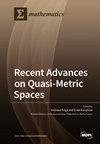利用差分进化增强 DENsity CLUstEring (DENCLUE) 的参数估计
IF 2.3
3区 数学
Q1 MATHEMATICS
引用次数: 0
摘要
利用样本的邻近性在数据集中寻找自然分组的任务被称为聚类,这是一种无监督学习方法。基于密度的聚类算法利用空间维度和邻域方面识别任意形状的聚类,对参数的选择非常敏感。例如,基于密度的聚类算法 DENsity CLUstEring(DENCLUE)需要通过反复试验才能找到合适的参数,从而获得最佳聚类。早期对 DENCLUE 参数估计自动化的尝试高度依赖于先验数据分布的选择(不同数据集的先验数据分布可能不同),或者通过固定一个参数(可能不是最佳参数)并学习其他参数。本文通过微分进化优化技术学习 DENCLUE 的参数,而无需先验数据分布假设,从而解决了这一难题。对所提出方法的实验评估表明,该方法在包含任意形状聚类的数据集(合成数据集和真实数据集)中具有一致的性能。在与其他基于密度的聚类算法(如基于加权局部密度序列和近邻分配的 DPC(DPCSA)和基于 KDE 的可变 DENCLUE(VDENCLUE))进行比较时,使用聚类验证指标(如剪影得分、戴维斯-博尔丁指数和调整后兰德指数)以及定性视觉分析对聚类性能进行了评估。本文章由计算机程序翻译,如有差异,请以英文原文为准。
Enhanced Parameter Estimation of DENsity CLUstEring (DENCLUE) Using Differential Evolution
The task of finding natural groupings within a dataset exploiting proximity of samples is known as clustering, an unsupervised learning approach. Density-based clustering algorithms, which identify arbitrarily shaped clusters using spatial dimensions and neighbourhood aspects, are sensitive to the selection of parameters. For instance, DENsity CLUstEring (DENCLUE)—a density-based clustering algorithm—requires a trial-and-error approach to find suitable parameters for optimal clusters. Earlier attempts to automate the parameter estimation of DENCLUE have been highly dependent either on the choice of prior data distribution (which could vary across datasets) or by fixing one parameter (which might not be optimal) and learning other parameters. This article addresses this challenge by learning the parameters of DENCLUE through the differential evolution optimisation technique without prior data distribution assumptions. Experimental evaluation of the proposed approach demonstrated consistent performance across datasets (synthetic and real datasets) containing clusters of arbitrary shapes. The clustering performance was evaluated using clustering validation metrics (e.g., Silhouette Score, Davies–Bouldin Index and Adjusted Rand Index) as well as qualitative visual analysis when compared with other density-based clustering algorithms, such as DPC, which is based on weighted local density sequences and nearest neighbour assignments (DPCSA) and Variable KDE-based DENCLUE (VDENCLUE).
求助全文
通过发布文献求助,成功后即可免费获取论文全文。
去求助
来源期刊

Mathematics
Mathematics-General Mathematics
CiteScore
4.00
自引率
16.70%
发文量
4032
审稿时长
21.9 days
期刊介绍:
Mathematics (ISSN 2227-7390) is an international, open access journal which provides an advanced forum for studies related to mathematical sciences. It devotes exclusively to the publication of high-quality reviews, regular research papers and short communications in all areas of pure and applied mathematics. Mathematics also publishes timely and thorough survey articles on current trends, new theoretical techniques, novel ideas and new mathematical tools in different branches of mathematics.
 求助内容:
求助内容: 应助结果提醒方式:
应助结果提醒方式:


